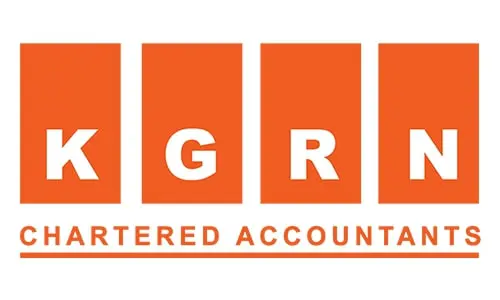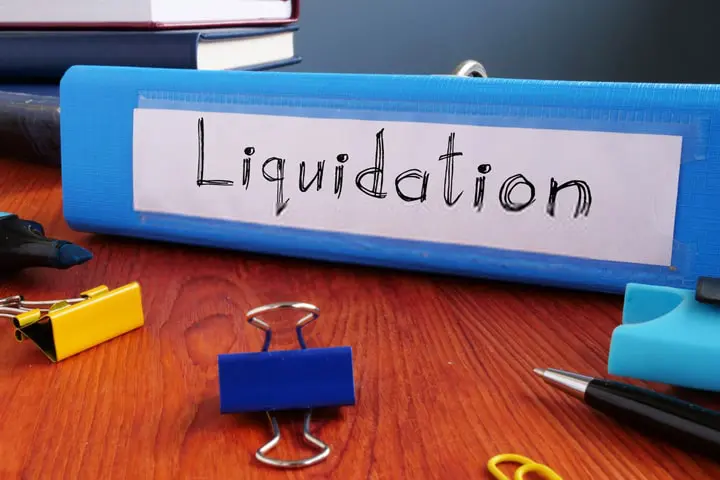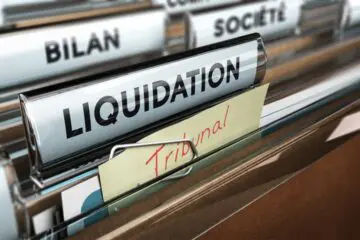Liquidation and de-registration procedures can seem complicated, but they don’t have to be with this breakdown of the process in the United Arab Emirates (UAE). If you are thinking about liquidating your business, or if you are an owner who wants to dissolve it, this guide will help you through each step of the process.
What is Company Deregistration?
Company deregistration is the process of officially removing a company from the commercial register. This can be done for a number of reasons, including ceasing trading, relocating the business, or changing the company structure. The process can be complex, so it’s important to seek professional help from a Company De-registration Service in Dubai.
The Process of Company Deregistration and Liquidation
Deregistration and liquidation of companies are essential procedures that enable firms to end their activities in a way that complies with the law. Understanding the procedures involved in these processes is crucial for business owners and stakeholders, whether it’s because of financial issues, reorganization, or the conclusion of a commercial venture. We will detail the crucial stages involved in business deregistration and liquidation in this thorough guide, highlighting their importance and potential difficulties.
Assessing the Need for Deregistration and Liquidation
Company stakeholders must assess the necessity of deregistration and liquidation prior to starting these processes. This entails a detailed evaluation of the business’s financial standing, debt-paying capacity, and general viability. Making wise judgments can be aided by consulting professionals like accountants and attorneys.
Board Resolution and Shareholder Approval
The board of directors of the firm must adopt a resolution to start the deregistration and liquidation procedure when it has been determined that it is necessary. Furthermore, getting shareholder consent is frequently necessary since it assures openness and adherence to corporate governance rules.
Appointment of a Liquidator
A crucial stage in the liquidation process is the selection of a liquidator. The professional insolvency practitioner known as the liquidator is in charge of managing the business’s affairs during the liquidation process. They are responsible for evaluating and realizing the company’s assets, paying off existing obligations, and allocating any monies left over to stakeholders in the appropriate order of priority.
Filing the Appropriate Documentation
The necessary government agencies must receive a variety of legal papers when a company is deregistered or liquidated. Typical examples of these papers are the notice to creditors, the appointment of a liquidator, and the application for deregistration. To minimize delays or any legal issues, it is essential that these submissions be accurate and thorough.
Liquidation of Assets
The liquidator locates, appraises, and sells the company’s assets throughout the liquidation process. In this stage, both tangible assets like real estate, machinery, and stock as well as intangible assets like intellectual property are valued. Following asset liquidation, remaining debts are then paid off, commencing with secured creditors.
Settling Debts and Liabilities
During the liquidation process, debts and liabilities, including unpaid bills to creditors, staff members, and other stakeholders, must be settled. The distribution of funds is overseen by the liquidator in line with the legal requirements’ established priority order.
Informing Creditors and Other Stakeholders
The company’s creditors and other stakeholders must be informed about the liquidation process by the liquidator. This entails issuing official notices online and notifying known creditors in writing so that they may file their claims within a predetermined time frame.
Company Deregistration
The corporation can go forward with deregistration if all debts have been paid and the liquidation procedure has been finished. The last step entails submitting the required paperwork to legally dissolve the business as a legal entity. The firm no longer exists after deregistration, and any assets that may be left behind are allocated to the shareholders.
Dissolving Enterprises under DDA (Formerly DCCA): 7 Steps
- One month before the liquidation, the firm must notify the DDA free zone authority of the reason for the entity’s closure. Otherwise, there will be consequences for breaching the lease agreement.
- A board decision (or shareholder resolution in the case of FZE/FZCO) must be attested in front of free zone officials in order to de-register. If the shareholders are from outside the country, or if the business is controlled by a foreign entity, the resolution must be verified and authenticated by the UAE embassy in that country, as well as authorised by the UAE Ministry of Foreign Affairs.
- All keys and transponders for the office must be returned to the company (It is not applicable for the companies in Leasehold or Freehold).
- The corporation is required to provide a copy of the new print advertisement in both English and Arabic.
- Original company licence, certificate of incorporation, share certificates, leasing agreement, and original Department of Economic Development licence (if it is issued through DDA)
- Various agencies must provide the following permissions: Customs clearance from the Dubai Customs Department\sDDA Finance Department approval Approval from the DDA Government Services Department DDA IT Section approval Etisalat approval (If Necessary)
- The liquidation report must be prepared by a Dubai Auditor.
In terms of the Dubai Development Authority (DDA)
The Dubai Development Authority (DDA) was renamed the Dubai Creative Clusters Authority following the enactment of Law 10 of 2018. (DCCA). The Authority’s primary purpose and area of interest are as follows:
Planning and development of real estate
Regulatory and licencing services in charge of all major projects and industries within their authority.
Industrial Advancement
The Dubai Development Authority (DDA) is crucial to the success and economic growth of the area. It has already achieved a global leadership position in urban planning, real estate development, and municipal and commercial services. The Dubai Development Authority (DDA) acknowledges a very comfortable business industry for the quality of its participants, which include real estate developers and their strategic partners, in contributing to Dubai’s economic success. They prioritise providing the best services, strategies, and values in order to transform and prosper on a global scale.
What is the Definition of a Corporation Liquidation?
Firm liquidation is the process through which a corporation decides to discontinue its operations because it can no longer continue to exist. When a corporation declares bankruptcy, it sells its assets to pay off its debts/liabilities/obligations. The revenues from the asset sale are distributed to the company’s shareholders. There are numerous forms of corporations in the UAE, including LLCs, sole proprietorships, and free zones. When a company is liquidated in the UAE, its assets and properties are distributed to the company’s creditors and shareholders. In other words, business winding up is another term for corporate liquidation. Before liquidating your business in the UAE, here is a checklist to follow.
- Completing the payment of all utility bills
- Telecommunications Bill Repayment
- Closure of the bank account Preparation of the final audit report Cancellation of all visas issued under the licence
- How can Emirates Chartered Accountants Group help you with Company Liquidation in the United Arab Emirates?
- During the process of liquidating a company in the UAE, numerous issues may arise, and it is also a progressive method in which time is employed progressively.
- We can help you complete all of the legal procedures and processes necessary to liquidate your company in the UAE.
- Assistance and guidance will be provided to deregister for VAT in the UAE.
- Because we have authorised the auditor for all of the UAE’s free zones, we will help in the preparation of the final audit report.
- Plan a low-cost Company Liquation by eliminating unnecessary expenses.
Company Liquidation in Free Zones
There are numerous free zones in the UAE, and each has its own set of procedures to follow when liquidating a firm in the UAE Free Zone, yet almost all of the free zones have the same set of laws for Company Liquidation. The following are the basic conditions for the liquidation of a free zone company:
The Board of Directors must approve a resolution in order to liquidate the corporation in a free zone.
Only registered and approved liquidators in the UAE may be appointed to liquidate a company in a free zone.
-
When closing a business in a free zone, all visas held by the company’s staff must be canceled and settled.
-
To initiate the liquidation process in a UAE free zone, a qualified auditor licensed by the relevant authorities is required to provide a formal liquidation letter.
-
A document issued by the free zone authority confirming that the business has fulfilled all its obligations and can proceed with the liquidation process.
-
The Business Unit, likely a regulatory body, has provided a certificate indicating they have no objections to the company’s liquidation.
-
A certificate from a government department, possibly the Department of Economic Development or a similar agency, confirming that there are no outstanding issues or objections to the business’s liquidation.
-
All financial obligations, such as fees and expenses related to the liquidation process, must be settled within the boundaries of the UAE’s free zone where the business is located.
KGRN assists customers with proper company liquidation processes in the UAE. We have a specialized specialist team for Company Liquidation Services, and you are welcome to contact us for preliminary advice on how to proceed in the most appropriate manner.
Company de-registration is a process that should be carried out by a professional company de-registration service in Dubai. This is because the process can be complex and time-consuming. A company liquidation service in Dubai can help you with the process of de-registering your company and can also provide advice on how to liquidate your company’s assets.





